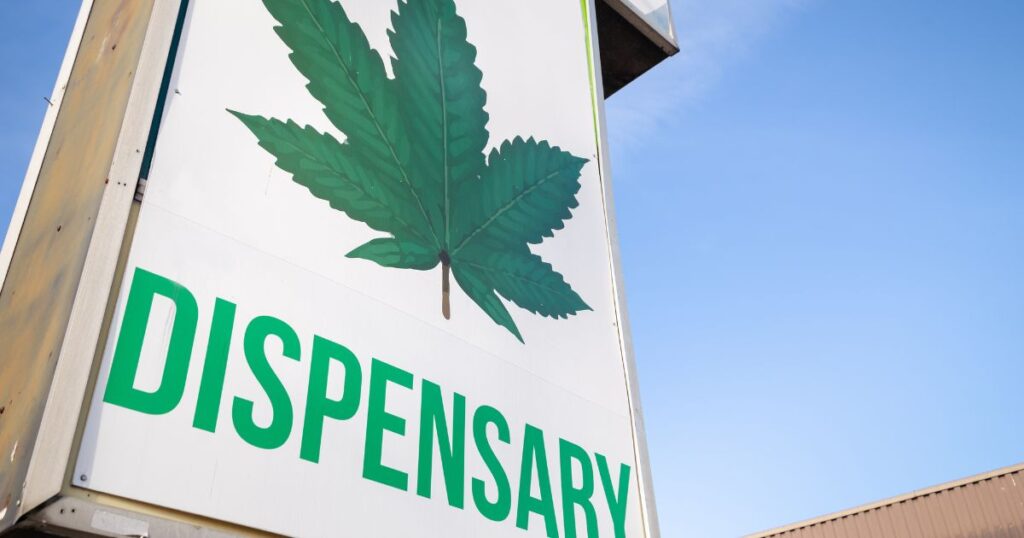In towns bordering Indiana and Wisconsin—states where recreational cannabis remains illegal—residents are voting to limit or even ban new marijuana dispensaries. This reaction isn’t necessarily a rejection of cannabis itself, but a response to the rapid influx of shops aiming to attract out-of-state buyers. These local votes highlight a larger, more complex issue: the growing pains caused by outdated cannabis prohibition in neighboring states.
When Michigan legalized recreational cannabis, it opened the door for a new, lucrative industry. For entrepreneurs, border towns presented a golden opportunity. By setting up shop just across the state line, they could easily serve customers from Indiana and Wisconsin, where legal access is nonexistent. The result has been a high concentration of dispensaries in small, often rural, border communities.
While this boom brings tax revenue and jobs, it also creates friction. Residents in some areas are now saying “enough is enough,” leading to local elections that put a cap on the number of dispensaries. This isn’t just a simple case of “not in my backyard.” It’s a community’s attempt to manage the unintended consequences of being a cannabis oasis next to a prohibition desert.
The Ripple Effect of Lagging Legislation
The situation in Michigan’s border towns is a direct consequence of the slow pace of cannabis reform in neighboring states. When states maintain strict prohibition, they don’t stop their residents from seeking out cannabis; they simply export the economic activity and regulatory challenges elsewhere. This creates a “cannabis border” phenomenon, where some Michigan towns bear the brunt of the demand from states that refuse to legalize.
The sheer number of dispensaries flocking to these areas is a primary concern for residents. In Niles Township, which borders Indiana, voters recently rejected a proposal that would have allowed 21 new cannabis stores along a single road, as reported by CBS News.
Similarly, in Menominee, a city on the Wisconsin border, residents voted to cap the number of dispensaries at nine after an initial boom led to eight opening in a short period.
Local residents express concerns that the character of their towns is changing, with an overwhelming number of shops catering primarily to out-of-state customers. They worry that the money generated by these businesses often flows to out-of-town corporations that may not have the community’s best interests at heart.
Navigating a Complicated Market
The cannabis market in Michigan is also facing its own internal pressures. The proliferation of over 850 stores across the state has driven down prices, creating a highly competitive environment. This saturation has even prompted some large retailers to exit the state.
Adding to the complexity, Michigan lawmakers recently passed a new 24% wholesale tax on cannabis, with the revenue intended for road funding. While lawmakers argue this tax is a positive step for state infrastructure, it adds another layer of financial pressure on dispensary owners, which in return is passed on the consumers.
A Call for Reform
The pushback from Michigan’s border communities is not an argument against legal cannabis. Instead, it serves as a powerful illustration of the problems that arise from a piecemeal, state-by-state approach to legalization. The real issue isn’t the presence of dispensaries in Michigan, but the absence of them in neighboring states.
If states like Indiana and Wisconsin were to legalize and regulate cannabis, they would create their own markets, generate their own tax revenue, and address the demand of their own residents. This would naturally ease the pressure on Michigan’s border towns, allowing their cannabis markets to serve local needs rather than functioning as regional supply hubs. The current situation forces a handful of small communities to manage the market demand of entire neighboring states.
The votes in Niles Township and Menominee should be seen as a call to action. They are a signal that the current state-level patchwork of cannabis laws is unsustainable. Until federal reform creates a consistent legal framework, or until neighboring states catch up, border towns will continue to navigate these unique and challenging circumstances.















